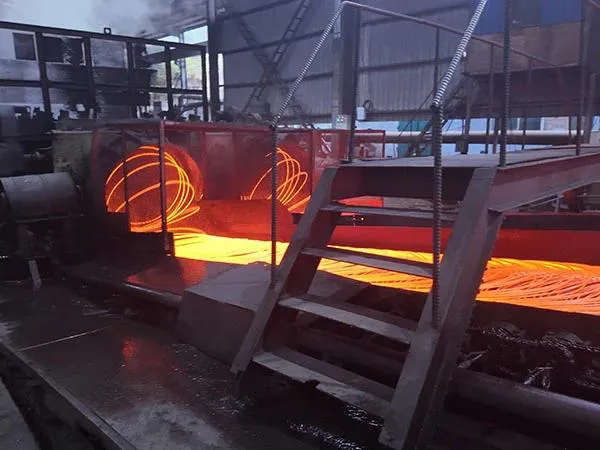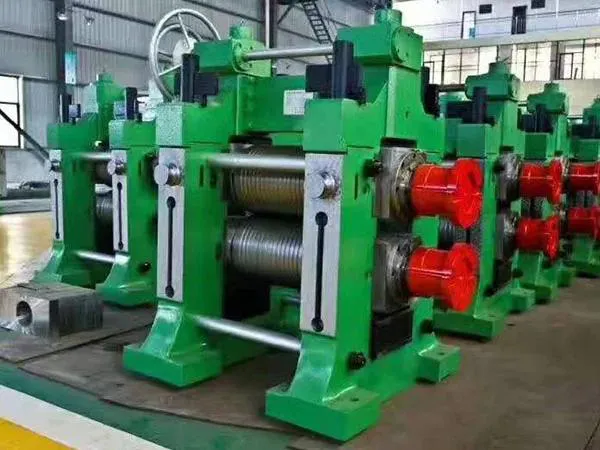Steel bars are essential in modern construction, forming the backbone of buildings, bridges, and industrial structures. Understanding the workings of a steel bar production line can help manufacturers enhance efficiency, maintain consistent quality, and reduce operational costs. Here’s a detailed overview of each stage in the process.

1. Raw Material Selection and Preparation
The production begins with high-quality steel billets or scrap metal. Raw materials are carefully chosen to meet strict composition and quality standards. In many production lines, scrap steel is melted in electric arc furnaces to form uniform billets, ensuring a consistent foundation for further processing. Proper material preparation is crucial for achieving superior mechanical properties in the finished steel bars.
2. Heating and Rolling Process
Prepared billets are heated to extremely high temperatures, often exceeding 1,200°C, in a reheating furnace. This makes the steel malleable enough for shaping. The heated billets then pass through a series of rolling mills, gradually forming bars with precise diameters. Modern production lines often use continuous rolling systems, which improve efficiency, reduce energy consumption, and maintain uniform dimensions across batches.
3. Controlled Cooling and Straightening
After rolling, steel bars are extremely hot and must be cooled carefully. Water quenching or air-cooling conveyors bring the bars down to ambient temperature while enhancing mechanical strength. Following cooling, precision straightening machines align the bars to strict dimensional tolerances, ensuring they meet construction standards and avoid structural defects.
4. Cutting, Inspection, and Quality Assurance
Straightened steel bars are cut to specified lengths using automated shears. Each bar undergoes thorough quality inspections, including dimensional checks, surface defect detection, and mechanical property tests. Advanced production lines often integrate non-destructive testing (NDT) technologies to guarantee structural integrity and compliance with international standards.

5. Packaging and Storage
Finished steel bars are bundled, labeled, and packaged to protect against corrosion and transportation damage. Efficient storage solutions ensure easy access for delivery to construction sites, industrial plants, or distributors. Proper handling at this stage preserves product quality and reduces logistics costs.
Optimizing Efficiency in Steel Bar Production
Modern steel bar production lines prioritize automation, energy efficiency, and real-time monitoring. Using sensors, programmable logic controllers (PLCs), and advanced control systems allows manufacturers to minimize waste, improve consistency, and optimize operational performance. Implementing these strategies not only enhances productivity but also supports sustainable manufacturing practices.
Conclusion
From raw billets to fully finished steel bars, each stage of a production line plays a critical role in ensuring high-quality products. By understanding how a steel bar production line works, manufacturers can identify efficiency improvements, maintain superior quality, and stay competitive in the global steel industry.
Rolling Mill Maintenance Guide: Maximize Performance, Extend Lifespan, and Reduce Downtime
2026-01-28How to Extend the Service Life of Rolling Mill Rolls: Practical Strategies for Steel, Aluminum, and Metal Rolling Plants
2026-01-23Comprehensive Guide to Rolling Mill Types and Their Production Processes
2026-01-15How to Improve Rolling Mill Production Efficiency: Practical Strategies for Higher Output and Better Quality
2026-01-09Address: Gongyi City, Zhengzhou City, Henan Province
E-mail: info@gyssljx.com
Phone: 0086 19339904886
If you have any product related questions, please feel free to call us at any time

With 30 years of professional experience, we customize efficient and energy-saving rolling mill production lines, providing you with one-stop service from design to installation and commissioning, helping you achieve steady growth in the steel industry.
Go
Top
SHENLONG Machinery · Your Rolling Equipment Expert ·